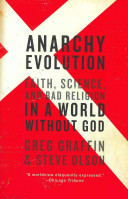Science Morals are Based on Empathy
The expression of empathy in humans requires that individuals have the proper experiences growing up. If children never witness adults behaving with respect tow)ward others, they are unlikely to learn how to do so themselves. Empathy, like most human traits. arises through a combination of our biological potential and our environmental influences. For that reason, groups of people can show wide variation in their emphatic style, and the expression of it within any single group can change significantly over time.
With some exceptions, Western religions have not emphasized empathy. They are prescriptive. They impose codes of behavior based on injunctions from supreme authority, not based on the give-and-take of human interactions. Western religions define proper behavior by analogizing human nature with the behavior of mythological figures who have supernatural powers. For example, people are supposed to behave like the saints or Jesus if they want to be admired members of a Christian community. Codes of conduct, therefore, emerge from the supernatural realm and are not to be questioned by mere mortals.
Science, in contrast, is based solidly on empathy. It posits a shared experience of the world, because, otherwise, how could we agree on explanations for, and verification of, natural phenomena? More deeply, it finds and celebrates in humans a capacity to learn about the world and share our experiences through reason, logic, language, music, and art.
The capacity for empathy enables us to organize our societies in beneficial ways. Because we can see at least some aspects of ourselves in one another, we can derive ways of acting that are good for us and for society as a whole. But in order for this to occur, we have to be open to accepting other people's experiences as equally valid to our own. This is simply impossible if prescriptive codes are too strictly enforced, particularly if those codes are underlain by the unverifiable "truths" of the supernatural realm. Empathy is the best basis for human ethics that we have. It provides a solid foundation for strong personal relationships and a productive society.
Notes:
As opposed to dictates from a supernatural being.
Folksonomies: science virtue humanism empathy
Taxonomies:
/science (0.571318)
/society (0.553732)
/science/social science/philosophy/ethics (0.429043)
Keywords:
empathy (0.909564 (positive:0.096123)), supernatural realm (0.739622 (neutral:0.000000)), Western religions (0.737547 (negative:-0.269266)), empathy enables (0.703050 (positive:0.903891)), strong personal relationships (0.643134 (positive:0.954358)), supernatural powers (0.532042 (negative:-0.269266)), Science Morals (0.505857 (negative:-0.671331)), emphatic style (0.503819 (neutral:0.000000)), proper experiences (0.495251 (positive:0.901168)), mere mortals (0.487566 (neutral:0.000000)), respect tow (0.485272 (positive:0.210177)), prescriptive codes (0.480420 (negative:-0.670646)), biological potential (0.478922 (neutral:0.000000)), wide variation (0.478660 (neutral:0.000000)), single group (0.475258 (neutral:0.000000)), environmental influences (0.473539 (neutral:0.000000)), human traits. (0.472689 (neutral:0.000000)), mythological figures (0.471144 (negative:-0.269266)), proper behavior (0.462093 (negative:-0.269266)), Christian community (0.461955 (positive:0.213978)), supreme authority (0.461599 (negative:-0.399276)), human nature (0.459394 (negative:-0.269266)), human interactions (0.457941 (negative:-0.361613)), natural phenomena (0.452261 (positive:0.444880)), solid foundation (0.445935 (positive:0.954358)), beneficial ways (0.444789 (positive:0.903891)), best basis (0.442637 (positive:0.919439)), human ethics (0.441889 (positive:0.919439)), productive society (0.441779 (positive:0.954358)), people (0.348044 (positive:0.373899))
Concepts:
Religion (0.967570): dbpedia | freebase | opencyc
Supernatural (0.651456): dbpedia | freebase
Psychology (0.621846): dbpedia | freebase | opencyc
Science (0.599312): dbpedia | freebase | opencyc
Reason (0.499595): dbpedia | freebase
Human (0.414958): dbpedia | freebase | opencyc
Natural environment (0.412330): dbpedia | freebase
Human nature (0.405757): dbpedia | freebase






